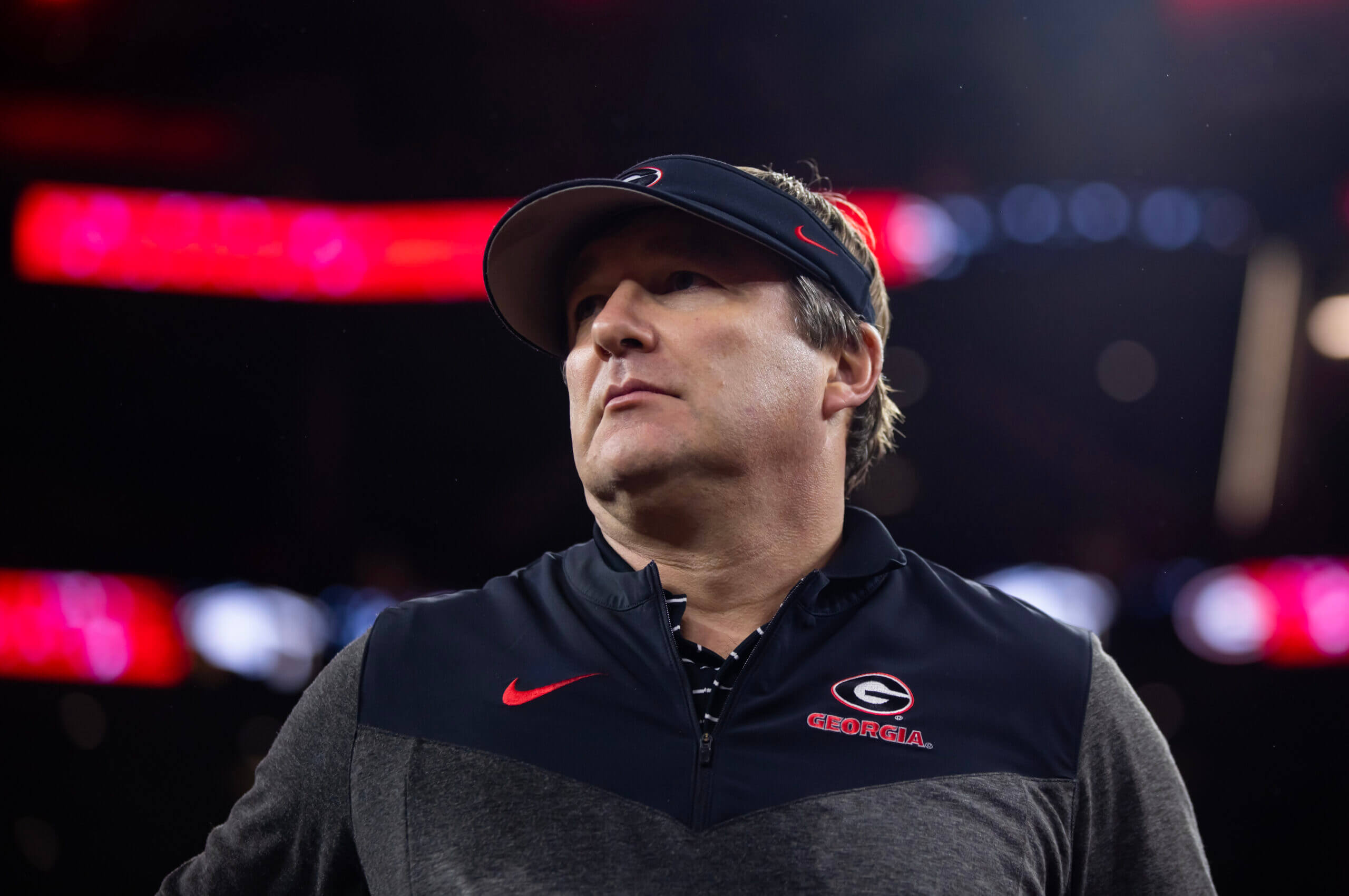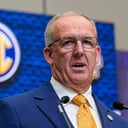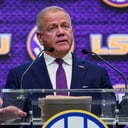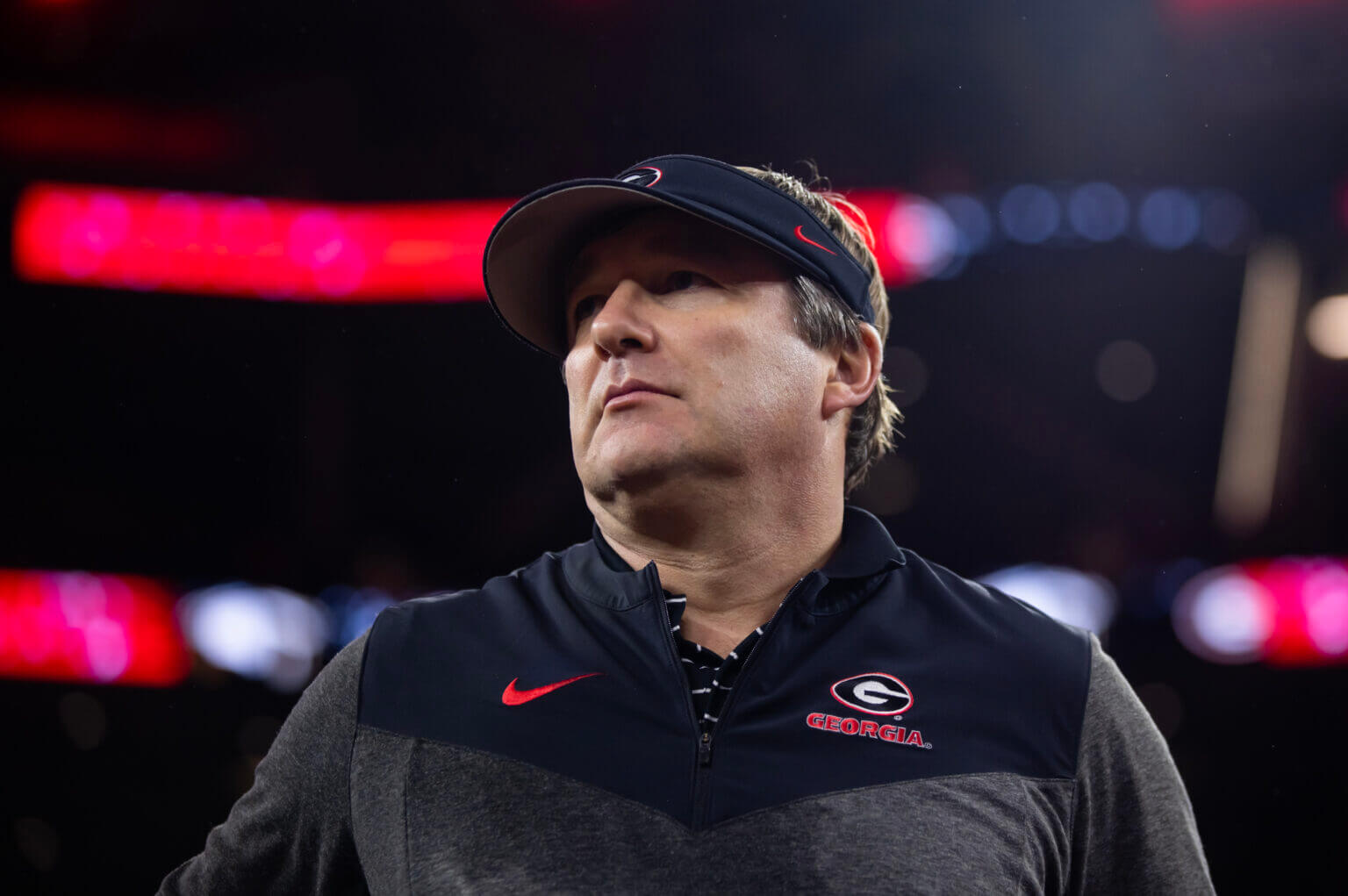DESTIN, Fla. — In fairness, this event is called the SEC meetings, not the SEC decisions. It’s OK if the key figures of the conference wanted to spend the week discussing things, especially as they grapple their way through a college sports world none of them expected to live in just a few years ago.
Advertisement
And yet what has stood out this week — besides the inability to decide on a football schedule — is how much talk there has been about things the coaches and administrators can’t really do anything about.
An athletic director was talking with a few reporters this week when he wondered why the schedule debate was getting so much attention when it was just a sliver of what was actually being discussed behind closed doors. Then he listed the things being talked about more: NIL, the transfer portal and sports gambling.
Well, he was told that’s because the SEC actually has control over its own schedule. Those other things? It does not. The athletic director smiled: “Good point.”
As rich as this league is, as powerful as it is, it cannot wave its hands and change any of these big issues facing the sport.
“A lot of the issues that are created in college sports today are because of an imbalance, that one state has this and another state has this,” Georgia coach Kirby Smart said. “It goes back to the same thing: We need great leadership. We need somebody to come along and say this is the way this is going to be done and everybody adhere to it, and then we can do it.”

Nobody is in charge. The truest thing about college athletics. And it leaves administrators and coaches with many questions and no good answers.
As Ole Miss coach Lane Kiffin put it this week: “They all know what they don’t like. They all know what to complain about. But nobody has that answer on what exactly to do.”
NIL: There was a window years ago for the NCAA and its schools to set their own guardrails by legalizing NIL rights with regulations. But it did nothing, and then the states stepped in, leaving a patchwork of laws that differs by state, the main rule being that there are no rules. Thus the constant refrain of “We need Congress to step in,” a valiant hope that a Republican-controlled House and Democratic-controlled Senate will pass a bill that would be signed by a Democratic president and that such a bill would be satisfactory.
Advertisement
Best of luck.
The transfer portal: It’s connected to NIL because of the perception that players leave because they get a better deal and not for playing time: Auburn coach Hugh Freeze opined this week that a lot of that would be solved by eliminating the one-time transfer exemption, except in cases when the coach leaves or the player graduates. But in the same breath, Freeze admitted there’s almost no chance of that happening.
Gambling: The firing of Alabama baseball coach Brad Bohannon caused the SEC to ramp up awareness of the subject this week. But awareness and education may be the limits of the SEC’s power. It was the Supreme Court, as SEC commissioner Greg Sankey belabored this week, that five years ago legalized sports betting all around the country. There are now 38 states that allow it, which is beside the point anyway because of the proliferation of sports apps allowing people to bet on seemingly anything, as Smart pointed out.

GO DEEPER
Greg Sankey outlines reasons for going to 9 games
“There’s like Chinese baseball games and stuff that people are gambling on. You’re like, ‘What?’” Smart said. “It’s literally crazy how easy it is from an access standpoint.”
Football coaches spent two hours Wednesday morning hearing about gambling. But there has not been any big movement on mandating injury reports, which the NFL does in large part to prevent gamblers from getting inside information. Coaches say they’re for it, as long as everyone is doing it, which everyone is not. (Missouri’s Eli Drinkwitz is an exception.) Some sort of availability report could be coming, but Sankey said he hasn’t run that by the lawyers yet. He said he’s constrained by HIPAA and other privacy laws, which the NFL is not because it collectively bargains its rules.
That raises another point: Colleges do not collectively bargain because their athletes are not considered employees or not part of a union. Both are third rail subjects for college administrators, but Nick Saban actually said this week he would be OK with athletes being employees because it would be better than the present situation. Saban may get the same private talk that Kiffin received after he publicly endorsed the idea last year. He has since toned down his stance.

GO DEEPER
Eight or 9 games? SEC coaches offer nuanced views
“I’ll admit not being really educated on all the things that would come with that, with labor and school,” Kiffin said. “That’s much more complicated than just saying, ‘Oh they’re employees.’ I was saying that because I just wanted to be able to have salary caps, know what people make and it be regulated. But there’s a lot more. Maybe you solve these six problems, but then open another six pages of problems.”
Advertisement
So the six current problems, or whatever the numbers are, remain. LSU coach Brian Kelly was asked if there was anything tangible that could be done, and he listed a few possibilities: Talk to local politicians to try to explain what schools are going through in hopes of getting legislation. When it came to NIL and the portal, coaches could try to tamp down on agents and handlers leveraging the portal to get better NIL deals. Some would debate the extent to which that’s a problem, but it is considered one among college coaches and administrators.
“So I think there’s many good things we can do to clean this up,” Kelly said. “As we’re dealing with it, there’s unintended consequences that we can fix. And there’s other things that we just have to stay ahead of and be nimble.”

GO DEEPER
Long-term decision on SEC football schedule unlikely this week
Otherwise, these meetings are more about dealing with problems rather than addressing them because they can’t on their own. Dealing with NIL. Dealing with transfer rules. Dealing with gambling.
Kiffin was asked if coaches felt helpless, that there wasn’t anything they could do.
“In what areas?” Kiffin asked.
All of them.
Kiffin laughed.
“I’ve always felt like these meetings were like that, period,” he said. “I felt like that since I got here, 14 years ago, that (coaches) just kind of say a lot of things and don’t really have a say. Because the presidents have a lot more say.”
The presidents now feel Kiffin’s pain. It’s a new era, as Sankey said this week. Everyone is still learning to deal with it and realizing that in this new era, there is much they just can’t control.
(Top photo of Lane Kiffin: Logan Hannigan-Downs / Icon Sportswire via Getty Images)
